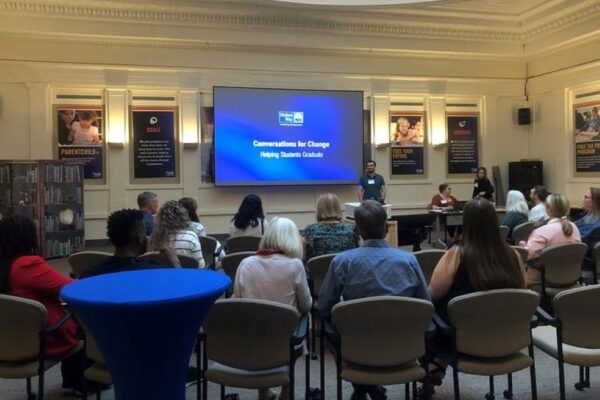United Way Champions Bridge to Finish Goes Virtual to Raise Awareness
With Stay Home, Stay Healthy still in full swing, United Way Champions hosted a virtual briefing to raise awareness for the Bridge to Finish program. Last week, Justice Bobbe Bridge (ret.) and Mala Raman welcomed donors to learn more about issues facing college students during COVID-19. CEO Gordon McHenry, Jr. welcomed the group and handed it over to Bobbe, who explained how the Bridge to Finish program works and its importance to breaking the cycle of poverty by helping thousands of low-income students succeed throughout the community college system.
One in five college students in Washington State report being homeless in the last year.
We know that education is the best way to break the cycle of poverty. Because of years of systemic racism and discriminatory practices and limited education opportunities for people of color, income and wealth gaps in our community are huge.
Lauren McGowan, Senior Director for Ending Homelessness and Poverty, shared new numbers on the many students that are being supported. Lauren highlighted that, in the first three quarters of this school year, Bridge to Finish helped over 6,000 students access 15,000 interventions on 10 community college campuses. The biggest hurdle is money and, with a $15 million goal, Bridge to Finish has the potential to scale across the region. A fully funded Bridge to Finish program can continue to strategically provide financial supports, emergency grants, childcare and ultimately effect policy that is imperative for students.
There was plenty of dialogue, discussion and questions in a casual and open atmosphere. These highly engaged Champions brought a lot of energy and did not let the online format get in the way. Mala and Bobbe ended the evening briefing with a few statistics on the success of the program.
- When Bridge to Finish support was accessed, there was a 9% higher rate of persistence.
- Students of color persisted at an even higher rate of 12%.
- On average, students accessed three interventions, which correlates to a long term social support system for students.
- Students are graduating with solid skills that make them more hireable. These skills will help them get jobs that pay living wages.
“This is data-driven, it’s research-based, and it’s compassion-orientated. What better deal can that be for what to do with your dollars in this day and age?”
Justice Bobbe Bridge (ret.)





Comments